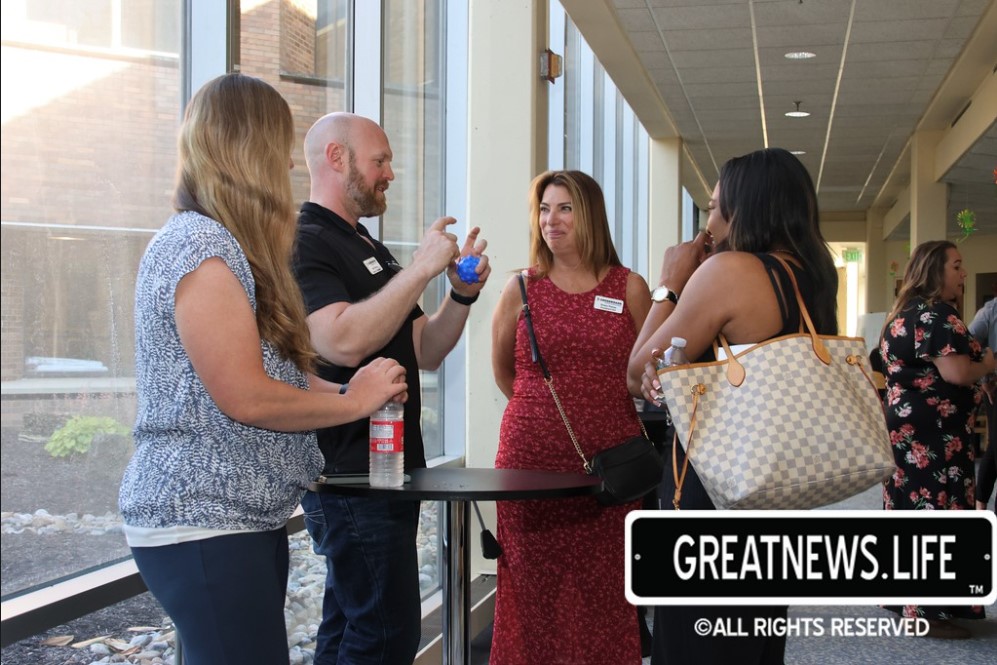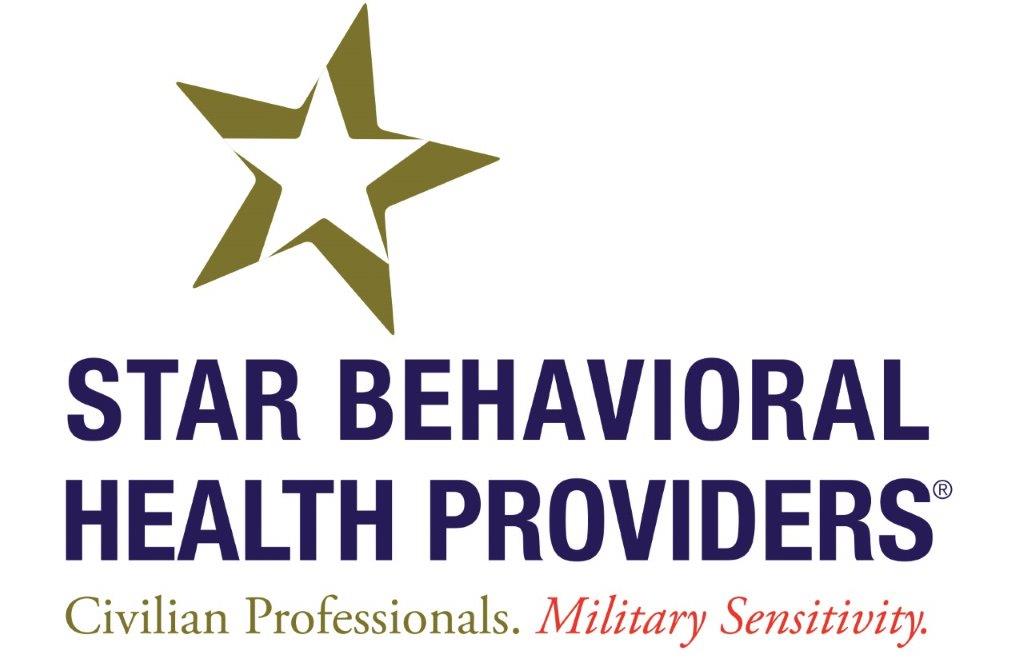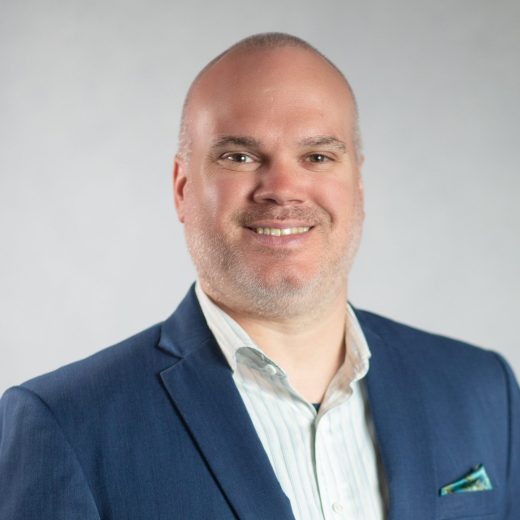
News Story: Regional Health Systems and Crossroads Chamber recognize Mental Health Awareness Month at Business After Hours event
May 28 2024


In May, Regional Health Systems earned an important designation as a Star Behavioral Health Center. It’s a distinction awarded to systems that provide services, policies and procedures that understand military culture and have staff and clinicians with training in that culture and evidence-based practices.
The honor couldn’t have come at a more appropriate time.
May is Mental Health Awareness Month and the month when the nation commemorates Memorial Day.
“A lot of times, military-connected individuals—either active duty, National Guard or veterans, especially—might be more reticent to get into therapy because they think no one’s really going to understand their experience,” said Jared Eaton, Service Director of Psychiatric Services at Regional Health Systems and a U.S. Army veteran. “We wanted to give them the assurances that we do care and we’re making sure that we understand some of their experiences so that we’re not just starting from scratch.”
A collaboration between Purdue University’s Military Family Institute and the Center for Deployment Psychology, Star Behavioral Health Providers (SBHP), which makes the designation, “connects military service members and their families with licensed behavioral health professionals who have specialized training in military culture and treatments shown to be effective with military families.”
To receive the designation staff and clinicians are required to have completed training in military culture and evidence-based practices provided by SBHP. About 75 percent of Regional Health Services’ staff and about 90 percent of clinicians have completed training in those areas, Eaton said. Those levels are far above what’s needed to earn Star Behavioral Health designation.
‘Pockets of ways to connect’
The designation underscores that military-affiliated individuals share some of the same issues as lifelong civilians and experience certain mental health issues more frequently.
Among military-affiliated people, Post-traumatic Stress Disorder (PTSD)—primarily among combat veterans and female members of the military who have experienced sexual trauma—arises most often, Eaton said. Major depression and substance abuse also are somewhat common mental health issues, Eaton said.
The most effective treatment for PTSD typically involve the client “telling the story” of experiencing the trauma several times in a safe setting that can help the individual process and deal with the trauma long-term, Eaton said.
Major depression and substance abuse among military-affiliated individuals is similar to that experienced by civilians, Eaton said, although depression among military persons often stems from their inability to integrate back into and make connections with civilian society. Treating that issue essentially amounts to helping new veterans connect by making them aware of veteran-centered activities, such as coffee meetups and other social events, sports and recreational activities, and hobby groups. Recently, Eaton even discovered a Friday jam session for veterans who are musicians.
“There are these little pockets of ways to connect,” Eaton said, “but sometimes veterans just don’t know about them. We try to make sure that they do and encourage them to try them out.”
Research has shown that having those connections, especially among veterans, is an effective way to reduce suicide rates.
Treating family dysfunction
Mental health issues among veterans also can ripple across their immediate families, Eaton said. Often those issues have to do with the military-affiliated person returning home from combat or related deployment as a very different person from the one who left months earlier. They can be angrier, be dealing with greater anxiety, or experiencing PTSD, Eaton said. Children in the home can be unsure what’s transpiring and why and can respond through anger or depression.
“There’s a disruption in the family which can just cause more conflict and anger issues that show up,” Eaton said. “It kind of depends on each situation. It’s really about a family system that just isn’t functioning the way it used to.”
The standard treatment in those circumstances is family or couples counseling in which those involved discuss what’s been occurring and look for ways to connect and communicate that work for everyone in the home.
“It’s about what are the patterns of communication, the patterns of the relationships and how can we improve those,” Eaton said.
Determining whether a behavior is problematic can come down to answering one fundamental question, he said.
“I think the biggest thing across the board, whether it’s military or civilian population, is to ask if there’s been a change in that person’s day-to-day functioning or something going on in life that is impacting function,” he said.
One issue that does strike military-affiliated personnel much harder than civilians, Eaton said, is suicide. Rates are much higher among military individuals compared to civilians. Being straightforward with an individual who may be considering self-harm is the best approach for friends and loved ones when they suspect someone is considering harming themselves, Eaton said.
“You don’t want to sugarcoat it,” he said. “You want to ask upfront, ‘Are you thinking of hurting yourself?’ You want to be very clear about what you’re asking and that you’re asking because you care and want to help, not because you’re nosy.”
Regional can help
If you are seeking help for yourself, a relative or loved one, Regional Health Systems has a wide array of resources, including psychiatry/medication management and behavioral therapy. Also, Regional Health Systems’ case management services can help individuals learn specific life skills such as budgeting or looking for a job. Regional also offers group homes, even in-patient services.
And Geminus Corporation offers pre-K education and sponsors day care, through which children can receive mental health and other services.
And remember, Eaton said, the National Crisis Hotline number is 988. Once the connection is made, callers can punch the number one to be immediately directed to the veterans crisis hotline.